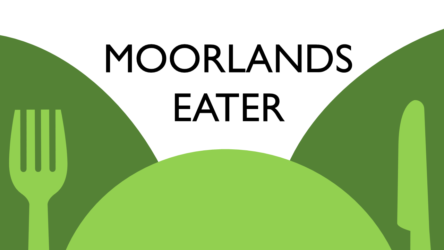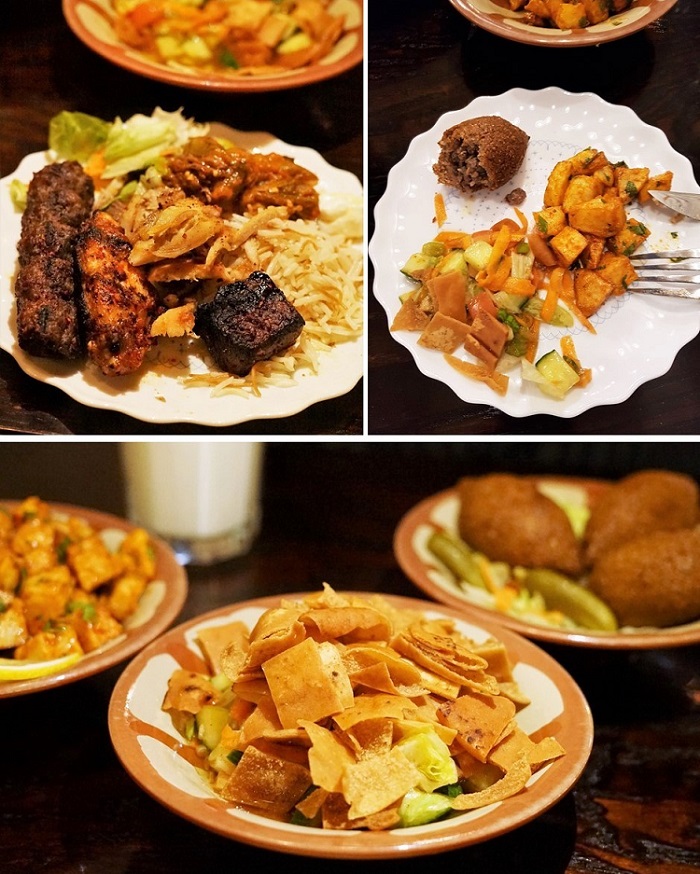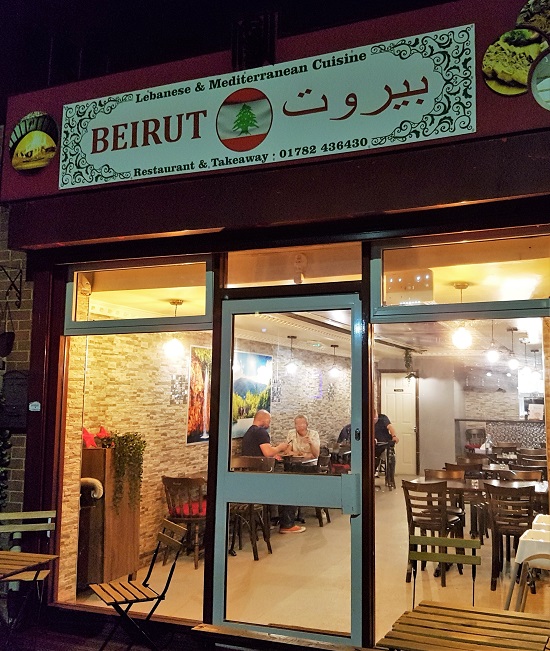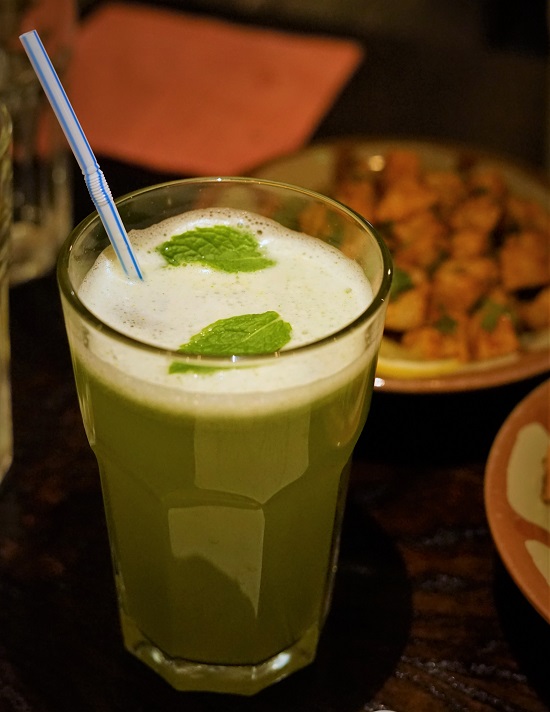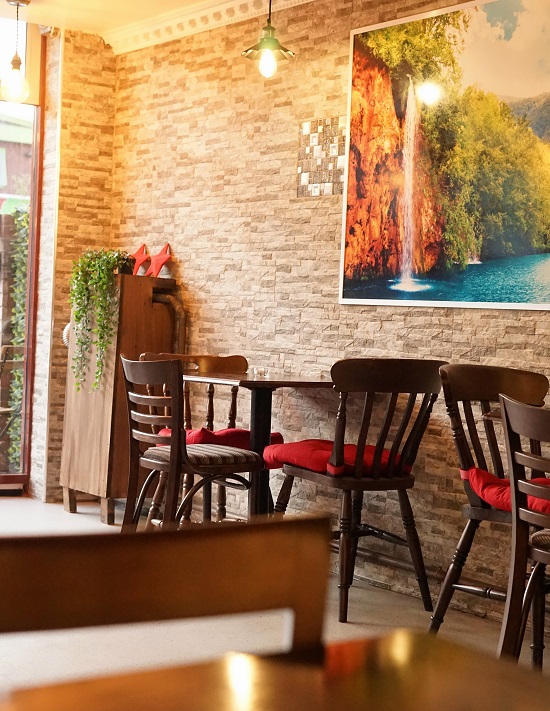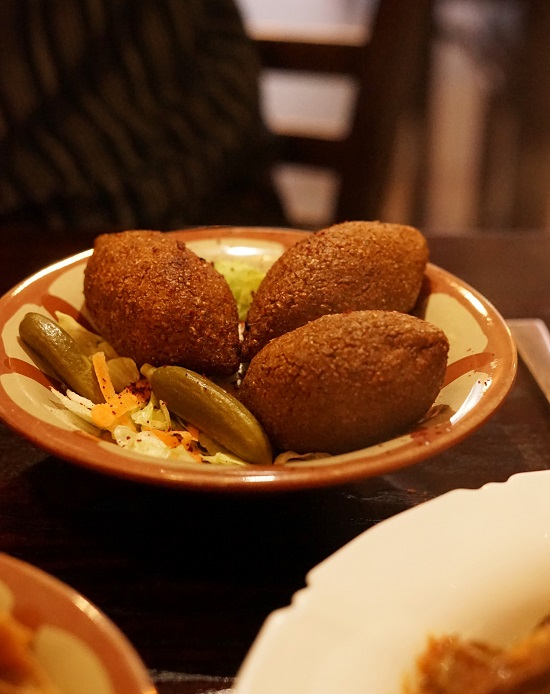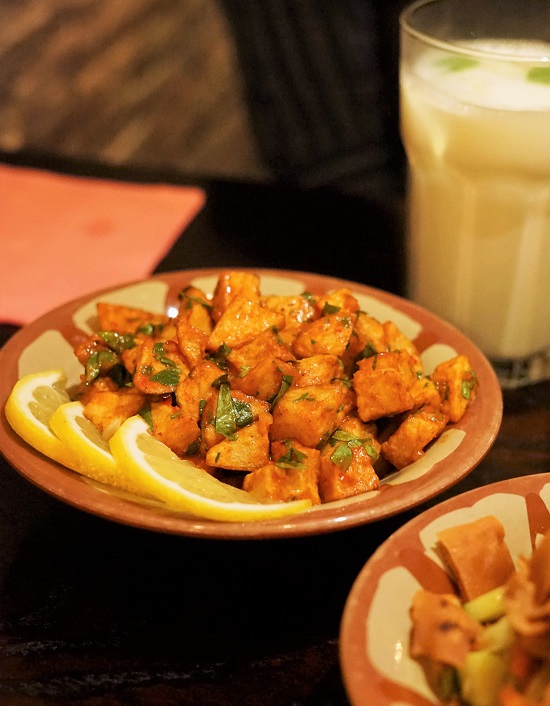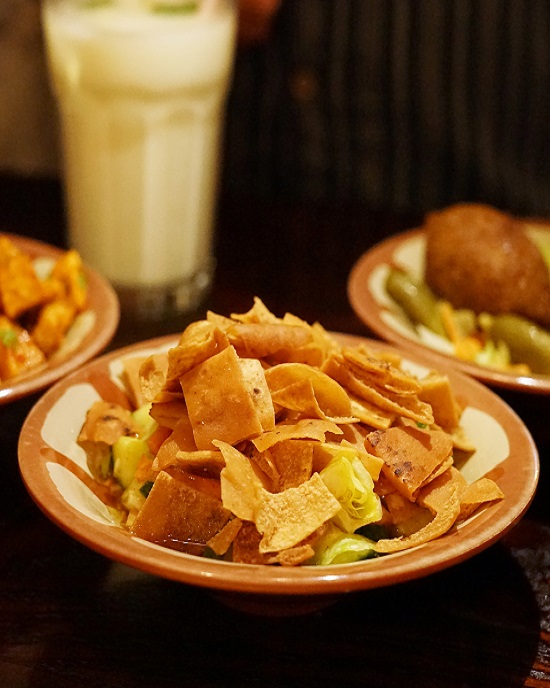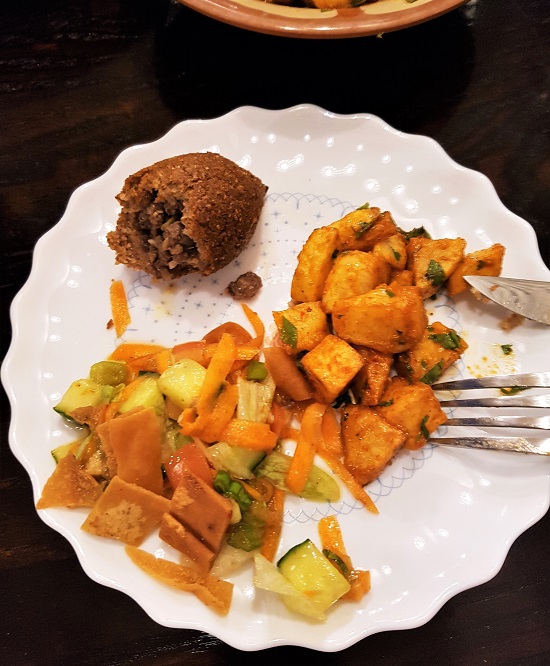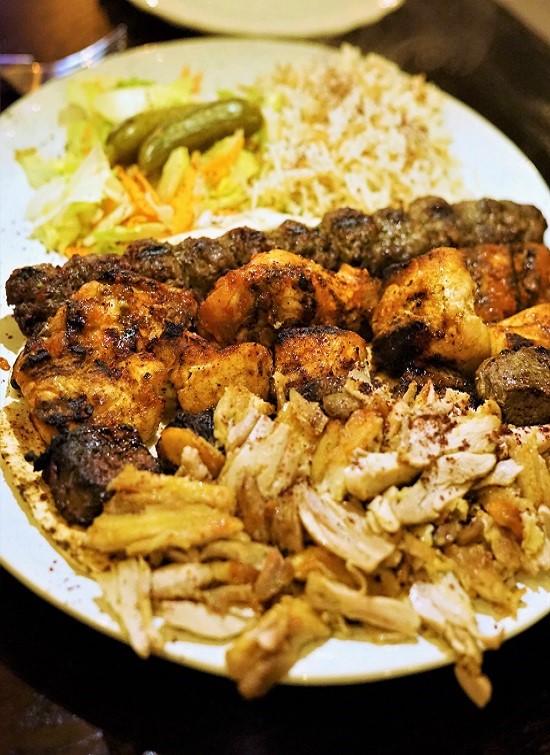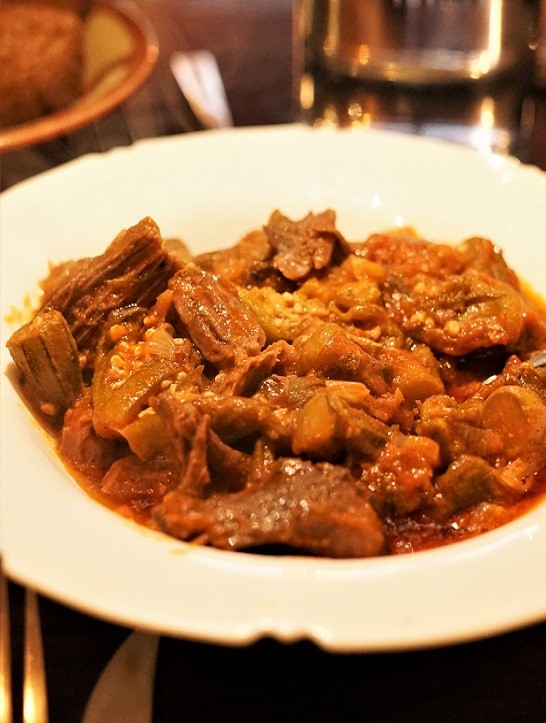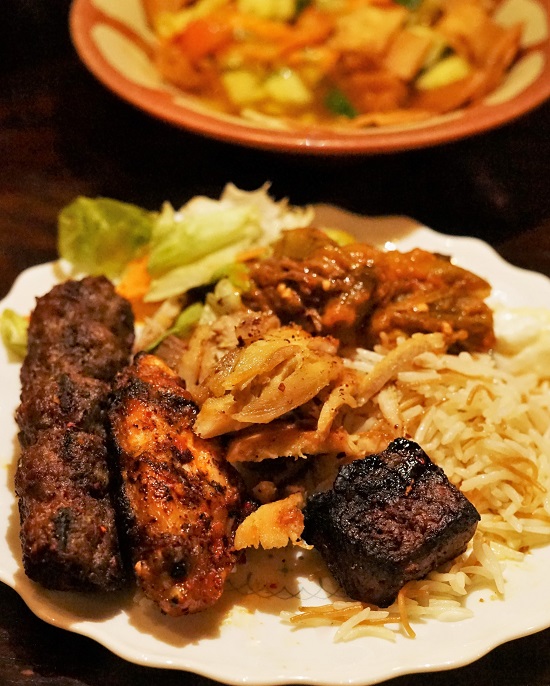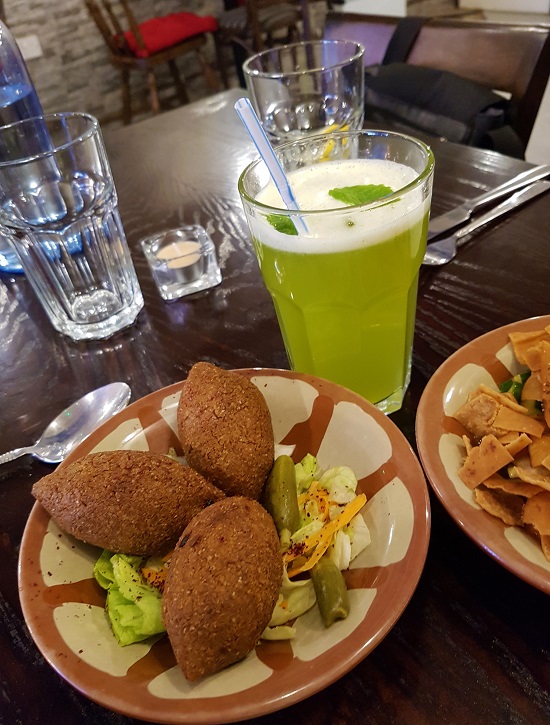Beirut Restaurant, Stoke-on-Trent
Beirut Lebanese restaurant in Stoke-on-Trent deserves to be so much more widely known. This small and friendly place serves up beautifully cooked food to eat in or take away. Choose from great value mezze small plates, salads, kebabs and Arabic dishes with incredible flavour.
As soon as I saw the menu online for Beirut, I knew I had to eat there. And soon.
The small restaurant and takeaway on Snowhill in Stoke-on-Trent has been operating under its current owners for around nine months. But I only heard of it (or so I thought) a few weeks ago.
A little-known gem?
After my enthusiastic review of Thalii in Stoke, someone sent a message to my Facebook page suggesting I really ought to try Beirut.
With their menu up on screen I called out to my partner (ID), ‘come and have a look at this Lebanese place, it sounds great!’. In he came, peered at the screen and said, ‘I’ve already suggested we go there. Don’t you remember driving past it when we’d been to Hawasana?’.
Oops, no. I don’t think the place had registered with me at all.
In my defence, I wonder how many other people have passed by Beirut without really taking much notice? It’s an unassuming place with a small frontage that gives little clue to the delights inside.
However, knowing that my favourite food is Middle Eastern (Lebanon is in the Eastern Mediterranean bit of the Middle East), I really do think ID should’ve been more insistent that we try Beirut.
Although I’ve never set foot in the Middle East, it’s the cuisine of that region which has most influenced my own cooking. That came through the work of Claudia Roden who is still my favourite food writer. Her Book of Middle Eastern Food, published in 1968, was groundbreaking in bringing to a wider British audience foods, like falafel and hummus, that are now so familiar.
So it was little wonder that I couldn’t wait to try Beirut.
Arriving early on a Saturday night, it was light and bright inside and pleasantly unfussy. Confirming my assumption that Beirut wasn’t that well known yet, we were the only customers at that point.
The Menu
Beirut’s menu is divided into Mezze (various hot and cold small plates you might think of as starter sized portions), small salads, soups, wraps, sandwiches, Lebanese burgers plus kebabs and Daily Arabic Dishes.
Virtually everything apart from the larger kebabs and the Arabic Dishes are either £3.99, £4.49 or £4.99. The larger plates are priced between £8.49 and £14.99.
We decided to share three smaller plates and two larger ones. All the dishes came at once and we were each given a small plate to serve ourselves from what we’d chosen.
Mezze
You’ll be familiar with many of the mezze dishes at Beirut. These include hummus (with or without chicken), falafal with tahini sauce and grilled halloumi.
But, before we even arrived, I knew exactly the first thing I wanted to order.
Kibbeh
Ever since I first heard of kibbeh, based on minced meat and bulgur wheat, I’ve wanted to try them. Claudia Roden describes kibbeh as the national dish of Lebanon and Syria (historically, Lebanon was part of Syria). In her Book of Middle Eastern Food she gives about ten different recipes, but I’ve never actually had a go at them.
At Beirut, Kibbeh Meleye (£4.99) was the classic version: spiced minced meat and onions deep fried in a crispy shell made from bulgur cracked wheat and lamb. I guess it’s getting that shell to hold that’s been the reason I’ve held back making them. Sounds a bit tricky.
But oh, what have I been missing?
I completely loved the kibbeh. They were crunchily dry on the outside with a pleasantly grainy texture from the bulgur. Inside, the full flavoured meat was moist; slightly sweet from onions and aromatic with cinnamon.
The three lemon-shaped kibbeh sat on a simple but fresh salad, some nicely acidic pickled gherkins on the side.
Among the feast laid out for us was a little bowl of airy yogurt that seemed to have been whipped with lots of garlic. Forkfuls of the kibbeh dipped into this were among the most satisfying things I’ve recently eaten.
Batata Harra
While kibbeh obviously takes some skill and practice to get right, you might think the next dish comparatively uncomplicated.
Described as ‘cubed potato sauteed with garlic, coriander, sweet pepper and chilli’, I honestly wasn’t expecting to love Batata Harra (£3.99) as much as I did.
The potatoes themselves were perfectly cooked and nicely browned. But what really wowed me was the good whack of chilli heat and also the lemon flavour that ran through the potatoes.
Lemon with potatoes is a fantastic combination (try Kleftiko for a Greek version) and this dish reminded me I should be cooking with it much more often.
Fatoush Salad
Fatoush Salad (£4.99) is perhaps a little more known in Britain than the preceding two dishes.
I’d always understood fatoush to have toasted flatbread at the bottom of a salad of tomatoes, onions and cucumbers. But I see (from Claudia Roden again) that the version we got at Beirut is the more popular one these days, not just in Europe but Lebanon too.
Rather than sitting soggily at the bottom of the bowl, this fatoush had lots of thin and crunchy toasted bread on top. Beneath, the salad was dressed with lemon and olive oil.
A simple dish, but one full of fresh flavour and satisfying texture.
Eaten together, our small plates made a great starter. We didn’t finish them off straight away though, as the lure of the large plates we’d ordered was too great. But the remains made nice additions to pick at throughout the meal – a bonus of not having strict first and second courses.
Large Plates
Under the heading of ‘Kebabs’ there were all the meaty, charcoal-grilled delights you’d hope for. Cubes of chicken or lamb, minced kofta, as well as half baby chicken, chicken wings and chicken shawarma.
The other main section for large plates, ‘Daily Arabic Dishes’, has a range of chicken or lamb rice dishes plus stews served with rice on the side. For vegetarians, there’s okra stew, spicy green lentils with rice and a Mosaka of fried aubergines baked with tomato, onion, chickpeas and peppers, served with rice or bread.
Beirut Special Mix Grill
Wanting to try lots of different kebabs, we ordered the Beirut Special Mix Grill (£14.99). This is the most expensive item on the whole menu but is still incredibly good value with generous portions of five different meats. There’s also a three-item mixed grill at £11.99.
I really liked the way the platter was brought to us. A large flatbread covered all the meat so all you first saw of it was tempting little bits that peeped out. Underneath the neatly arranged meat we found another flatbread, soaking up some of the juices. On the side was rice plus salad and pickles.
I’ll start off with the one bit of the mix grill that I was a little disappointed with. The lahem meshwi or cubed lamb was mainly overcooked and so a little tough. The flavours were good, but we did leave one piece which was very overdone. Admittedly though, if it hadn’t been such a big portion, we’d have probably eaten that last piece too!
Yum
With everything else in the mixed grill though, I have zero complaints.
The large cubes of chicken shish tawouk were appetizingly golden brown on the outside with some spicy heat. They were moist and tender within. The full-flavoured kofta kebab of lamb minced with onion and parsley was equally good and cooked perfectly.
The chicken wings were excellent. They were nicely charcoaled on the outside but were not overcooked at all. The meat came away easily from the bones. I also liked that these had considerably more chilli heat than the other elements in the mix grill, giving some variety.
The final item was chicken shawarma. Like Turkish doner and Greek gyro, Middle Eastern shawarma refers to vertically grilled, rotating meat. Those different terms come from the words for ‘turning’ in Turkish, Greek and Arabic.
But if you hear the word ‘doner’ and think of that smooth lump of meat (actually a paste) of dubious origin, held together by lord knows what, don’t worry. At Beirut you’ll see behind the counter a spit loaded with slices of real chicken, deliciously roasting as it slowly turns.
There was a good pile of the shredded chicken on the platter. Like the kibbeh, the shawarma appeared to have been mildy spiced with warming cinnamon.
Whether eating forkfuls of the rich meats with rice and salad or rolling morsels inside the flatbread, the mix grill was a real delight. Dabs of the garlicky yogurt made it even better.
Lamb Okra Stew
The other large plate we shared was Lamb Okra Stew (£8.99) from the Daily Arabic Dishes part of the menu. This is served with a plate of rice containing the traditional Lebanese addition of broken up and toasted vermicelli pasta.
I’ve never had much success with cooking okra myself, but I’ve enjoyed this vegetable (sometimes called ladies’ fingers) various times eating out and that was the case at Beirut.
Mind you, it probably helped that the okra sat in a rich and thick sauce of tomatoes, onion, coriander and garlic. There were big chunks of lamb in there too. These had been cooked extremely well so that they were soft and falling apart. The meat added great depth of flavour to the stew’s sauce.
With the mixed grill featuring drier meats, the Lamb Okra Stew was a good accompaniment, along with some rice to soak up the juice and salad to freshen things up.
We found the portions to be very generous and, despite us both having very hearty appetites, we didn’t make much of a dent in the second plate of rice.
Drinks & Desserts
Beirut is unlicensed but you can take your own alcohol.
Besides the usual fizzy stuff in cans (£1.99) there’s Arabic tea (£1.99) and Arabic coffee (£2.99). But we decided to select from the interesting range of fresh soft drinks.
I chose Lemon Mint (£3.49). This was a refreshing sweet drink, but not too sweet, presumably made from lemon juice, mint leaves, sugar and water. The combination of zingy lemon and very fresh mint was lovely.
ID ordered Laban Ayran (£3.49). This is a chilled yogurt-based drink which, as lovers of Indian lassi, we enjoyed.
We didn’t have room for dessert, but there’s a small selection (£4.99 – £5.49) including a Lebanese milk pudding with rosewater and pistachios, and Arabic fruit salad.
Highly Recommended
While there were four other customers by the time we left, I still get the impression that Beirut hasn’t yet gained the following it truly deserves.
They serve a good range of dishes, familiar and less well known, which I think lots of people will love once they try them – especially that kibbeh!
But even if you do go for old favourites like falafel, hummus or kebabs, you’ll get great examples of those dishes. I’m convinced that the flavours of this outstanding cuisine will draw you back.
Beirut is also exceptionally good value. Our food bill, without drinks, came to under £19 per person.
If you haven’t tried Beirut yet, what are you waiting for?
Note: Beirut is cash only, but there’s an ATM just over the road.
ALL PHOTOS © MOORLANDS EATER & NOT TO BE REPRODUCED WITHOUT PERMISSION
ACCESSIBILITY
I’m not aware of a formal access statement for this venue and the following is my subjective impression only. Please note, however, that I’m not mobility impaired so you may wish to contact the venue directly to check whether it meets your own requirements.
There’s a single step up into the restaurant from the street. Inside are two rows of tables with a wide gangway between them. There is a single toilet off the dining area with no steps. The stall is a reasonable size although not necessarily large enough for a wheelchair. There are no support rails and there’s a pedestal type sink.
If you’ve visited this venue and can provide more information useful for people with disabilities, please leave a comment below. If you’re the owner of this venue, I’d be happy to update this post with any further information about accessibility.
